Links to external sources may no longer work as intended. The content may not represent the latest thinking in this area or the Society’s current position on the topic.
Industry College Networking 2021
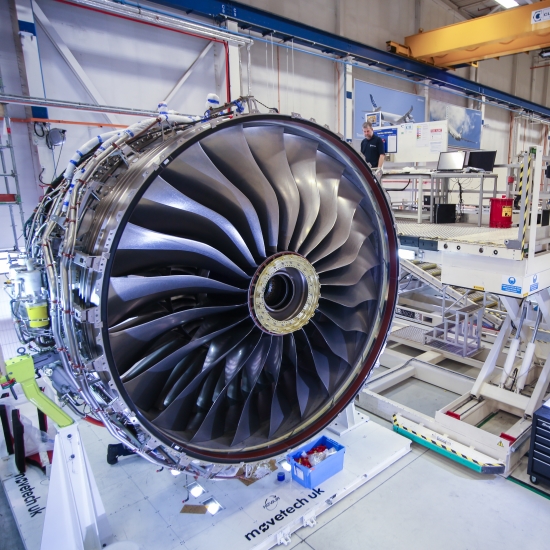
This conference will address cross-sector collaborations by bringing together past and current Royal Society Industry Fellows, Entrepreneurs in Residence and their collaborators.
Participants will have the opportunity to discuss issues and successes and hear about the wider work of the Society.
Organisers
Schedule
Chair
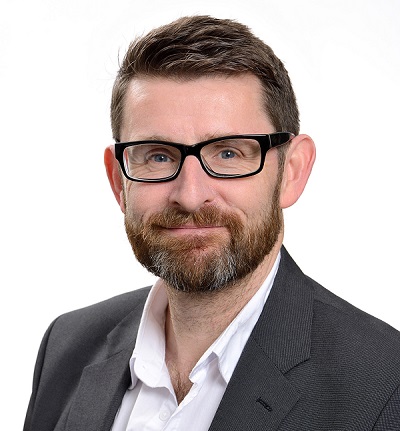
Professor Joe Sweeney, University of Salford

Professor Joe Sweeney, University of Salford
Professor Joe Sweeney was awarded a BSc in Chemistry and elected an Associate of the Royal College of Science at Imperial College, and carried out a PhD studying synthetic uses of aziridines and allylstannanes at the University of Oxford. In 1990, Joe was appointed as Lecturer in Chemistry at the University of Bristol where he developed research projects focused on new methods for preparation and use of polyhydroxylated ring structures, aziridines and metalled furanones, and the total synthesis of several naturally-occurring lactones.
He then moved to a Readership in Organic Chemistry at the University of Reading. In 2007, Joe was awarded the inaugural Faculty Output Prize at the University of Reading for his group's publication on asymmetric rearrangements, and became Professor of Synthesis and Chemical Biology. In 2008, Joe was awarded a Royal Society Industry Fellowship with AstraZeneca, which was later extended. Joe is now Dean for the School of Science, Engineering and Environment at the University of Salford.
Opening remarks

Professor Joe Sweeney, University of Salford

Professor Joe Sweeney, University of SalfordProfessor Joe Sweeney was awarded a BSc in Chemistry and elected an Associate of the Royal College of Science at Imperial College, and carried out a PhD studying synthetic uses of aziridines and allylstannanes at the University of Oxford. In 1990, Joe was appointed as Lecturer in Chemistry at the University of Bristol where he developed research projects focused on new methods for preparation and use of polyhydroxylated ring structures, aziridines and metalled furanones, and the total synthesis of several naturally-occurring lactones. He then moved to a Readership in Organic Chemistry at the University of Reading. In 2007, Joe was awarded the inaugural Faculty Output Prize at the University of Reading for his group's publication on asymmetric rearrangements, and became Professor of Synthesis and Chemical Biology. In 2008, Joe was awarded a Royal Society Industry Fellowship with AstraZeneca, which was later extended. Joe is now Dean for the School of Science, Engineering and Environment at the University of Salford. |
|
Overview of our annual spinout data report and upcoming entrepreneur handbook
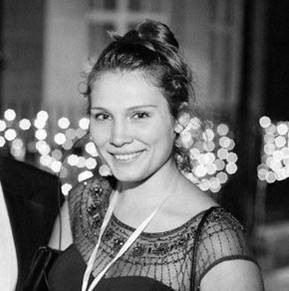
Joy Aston, Royal Academy of Engineering

Joy Aston, Royal Academy of EngineeringJoy is a Research and Innovation Policy Officer at the Royal Academy of Engineering. One of her current projects is on IP and commercialisation with the Academy's Enterprise Hub, focused on spinouts. Her other work is broadly in the research culture space. |
|
The key stages of company creation

Dr Fiona Marston OBE, Royal Society Entrepreneur in Residence at the Liverpool School of Tropical Medicine

Dr Fiona Marston OBE, Royal Society Entrepreneur in Residence at the Liverpool School of Tropical Medicine |
|
|
The clue is in the titles - Why Hardware is hard and why deep tech is deeply problematic
Mark will give an overview of the offer and journey of a Deep Tech start-up, and what he would have done differently based on experience to date. 
Mark Evans, Founder and CEO of Adaptix Imaging

Mark Evans, Founder and CEO of Adaptix Imaging |
Chair

Professor Joe Sweeney, University of Salford

Professor Joe Sweeney, University of Salford
Professor Joe Sweeney was awarded a BSc in Chemistry and elected an Associate of the Royal College of Science at Imperial College, and carried out a PhD studying synthetic uses of aziridines and allylstannanes at the University of Oxford. In 1990, Joe was appointed as Lecturer in Chemistry at the University of Bristol where he developed research projects focused on new methods for preparation and use of polyhydroxylated ring structures, aziridines and metalled furanones, and the total synthesis of several naturally-occurring lactones.
He then moved to a Readership in Organic Chemistry at the University of Reading. In 2007, Joe was awarded the inaugural Faculty Output Prize at the University of Reading for his group's publication on asymmetric rearrangements, and became Professor of Synthesis and Chemical Biology. In 2008, Joe was awarded a Royal Society Industry Fellowship with AstraZeneca, which was later extended. Joe is now Dean for the School of Science, Engineering and Environment at the University of Salford.
Entrepreneur in Residence Case studies
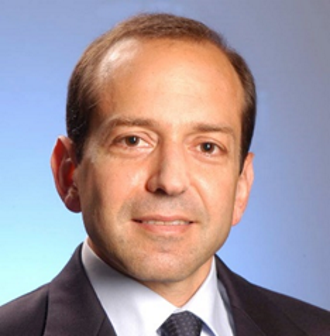
Dr Alan Roth, University of Oxford

Dr Alan Roth, University of OxfordAlan’s career in life sciences comprises academic R&D, emerging executive operations, strategic consultancy and investment management. Starting his career as research chemist at Merck, after his academic work he joined McKinsey serving leading companies globally. He was then Director at Commerzbank in charge of global healthcare investments and overall industrial investment research. He later co-founded, took public and was first CEO of Chiral Quest, a life sciences company in chiral pharmaceuticals. He is Director at Fitzroy Partners in London developing new life sciences ventures and CEO of the Oxford University drug discovery spinout Oxford Drug Design. At Oxford, Alan is Royal Society Entrepreneur in Residence and Lecturer in the Chemistry Department, accelerating translation of Oxford innovation across sciences, medicine and engineering. He earned his BA (Hons) from Cornell University, PhD in organic chemistry from Columbia University, and Postdoctoral Fellowship in medicinal chemistry from Oxford. |
|
Intro to my Industry Fellowship
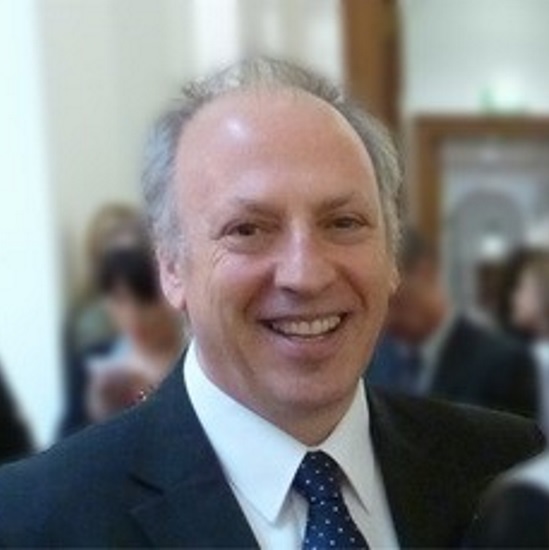
Professor I. David Abrahams, Director of the Isaac Newton Institute, University of Cambridge

Professor I. David Abrahams, Director of the Isaac Newton Institute, University of CambridgeDavid Abrahams is an applied mathematician specialising in the modelling, analysis and application of waves found in a wide range of application areas in physics and engineering. He is concerned with phenomenological questions as well as developing the underpinning mathematical analysis for the subject, and his research has broad application. He has recently become Professor of Applied Mathematics at Cambridge University, having completed his term (2016-2021) as NM Rothschild & Sons Professor of Mathematical Sciences and Director of the Isaac Newton Institute for the Mathematical Sciences (INI), Cambridge. David is a keen proponent for knowledge exchange in the mathematical sciences and recently directed the Newton Gateway to Mathematics, which facilitates this endeavour. David holds Visiting Researcher/Honorary Professorship positions at Manchester, Edinburgh and Aberystwyth Universities, which allow him to interact with staff members there and maintain a broader perspective on research and community activity. He plays an active role within the international mathematics community, having served on over thirty national and international working parties, panels and committees over the last decade. In particular, He was President of the Institute of Mathematics and its Application in 2008-2009, Deputy Chair for sub-panel B10 (Mathematics) in the 2014 REF, and Chair of EPSRC’s Mathematical Sciences Strategic Advisory Team (2014-15). David is also spearheading the creation of a Connected Centres Network to promote and facilitate knowledge exchange activities across all mathematical sciences departments around the United Kingdom. Over his career, David has made contributions to many fields, including acoustics, aeroacoustics, water waves, optics, elasticity, non-destructive evaluation and seismology. He maintains long-standing and close working links with a number industrial partners (e.g. in recent years Dyson, AWE and DSTL), As Royal Society Industry Fellow he will spend 50% of his time working with Thales UK on noise-reducing coatings for underwater vehicles and other projects. |
|
What did a Royal Society Industry Fellowship ever do for me?
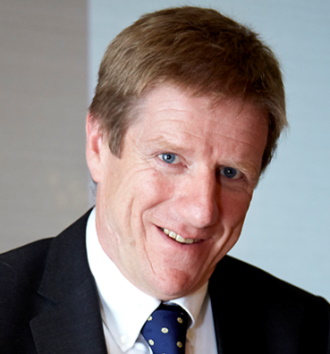
Professor Russell Morris FRS, University of St Andrews

Professor Russell Morris FRS, University of St AndrewsRussell Morris was born and brought up in north Wales and is currently Bishop Wardlaw Professor of Chemistry at the University of St Andrews. Morris’s research concentrates on the synthesis, characterisation and application of porous materials such as zeolites and metal-organic frameworks. Some of his developments include the use of ionic liquids for the ionothermal synthesis of materials, the ADOR method for the manipulation of zeolites, the use of porous materials to store and deliver medically useful gases, and the incorporation of the technologies into medical devices and chemical processes. He is an elected Fellow of the Royal Society (FRS), the Royal Society of Edinburgh (FRSE), the Learned Society of Wales (FLSW) and a Member of the Academia Europaea (MAE). He is Vice-president (physical sciences and engineering) for the Royal Society of Edinburgh and is the holder of a European Research Council advanced grant. He is a past winner of the Royal Society Brian Mercer Award for Innovation and a Royal Society Industry Fellowship. |
Using Boron Doped Diamond for Wastewater Treatment and Disinfection
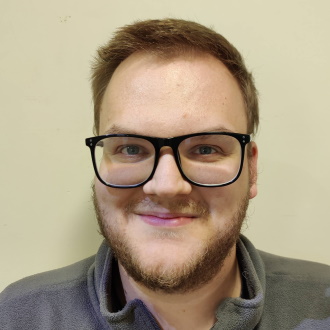
Joshua Tully, University of Warwick

Joshua Tully, University of WarwickJoshua Tully is a Royal Society funded PhD student in the Warwick Electrochemistry and Interfaces Group (WEIG) at the University of Warwick, UK. He completed his MChem degree in Chemistry at the University of Warwick in 2018, under the supervision of Prof. Julie Macpherson. Joshua’s research efforts centre around the processing and utilization of lab grown diamond for a variety of challenging applications and utilize advanced technologies such as laser micromachining and 3D printing. |
|
Context-Aware Facial Inpainting with GANs
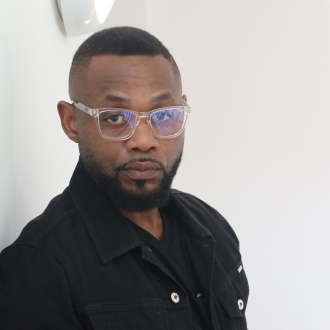
Jireh Jam, Manchester Metropolitan University

Jireh Jam, Manchester Metropolitan UniversityJireh Jam is a PhD student at Manchester Metropolitan University. He is also a research intern at Image-Metrics Manchester. His current interest are Machine learning, computer vision. This is his first face to face presentation at Royal Society poster presentation. His publications can be found here. Jireh currently lives in Manchester and enjoys travelling and loves to challenge himself since he left the army. |
|
Transforming Radiology: High Flux Field Emission for 3D Medical Imaging
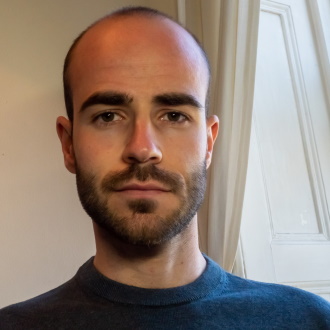
Salvador Barranco Cárceles, University of Edinburgh

Salvador Barranco Cárceles, University of EdinburghSalvador Barranco Cárceles is a CDT-PhD student at the University of Edinburgh doing research in vacuum microelectronics. His research aims to develop a core part of a steady tomosynthesis device for inexpensive, low radiation dose and portable 3D medical imaging system. He has collaborated in the development of neural probes, microfluidic devices and implantable antennas for medical applications, granting him extensive experience in semiconductors processing. In 2021, Salva was awarded with a Royal Society of Edinburgh Saltire Research Fellowship to explore and expand the physics of vacuum breakdown in semiconductors. He has also led several student societies raising more £55k in funding and managing teams of up to 20 students. |
|
Capillary refill time and SpO2 measurement using optical wireless pulse oximeter sensor
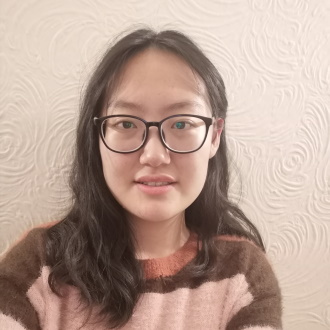
Zichen Yang, University of Nottingam

Zichen Yang, University of NottingamZichen Yang received high school education in China and is currently a third year Electrical and Electronic Engineering student at University of Nottingham, UK. She will graduate in July 2021 with a Bachelor degree and pursue a master degree in electronic engineering. During summer 2021 Zichen worked in Optical Fibre Group at University of Nottingham, conducting volunteer study on foot capillary refill time and SpO2 measurement using an optical wireless pulse oximeter sensor, supervised by Prof. Steve Morgan and Prof. Barrie Hayes-Gill. Currently she is working on her final year project on a wearable fibre optic temperature sensing interrogation system. |
|
Development of a New Blood Circulatory System Simulator

Xin Shu, University of Nottingham

Xin Shu, University of NottinghamXin Shu is in her third year at the University of Nottingham, studying for a BEng in Electrical and Electronic Engineering. In 2021, Xin undertook a Royal Society Industry Fellows summer studentship project under the supervision of Professor Steve Morgan in collaboration with Footfalls and Heartbeats. |
|
Functional Aluminium Matrix Nanocomposites
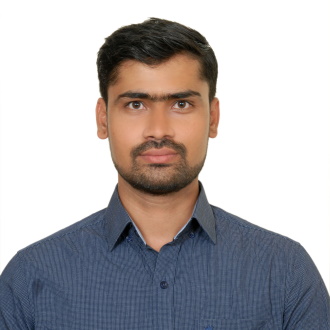
Sunil Poudel, University of Exeter

Sunil Poudel, University of Exeter |
Chair

Professor Joe Sweeney, University of Salford

Professor Joe Sweeney, University of Salford
Professor Joe Sweeney was awarded a BSc in Chemistry and elected an Associate of the Royal College of Science at Imperial College, and carried out a PhD studying synthetic uses of aziridines and allylstannanes at the University of Oxford. In 1990, Joe was appointed as Lecturer in Chemistry at the University of Bristol where he developed research projects focused on new methods for preparation and use of polyhydroxylated ring structures, aziridines and metalled furanones, and the total synthesis of several naturally-occurring lactones.
He then moved to a Readership in Organic Chemistry at the University of Reading. In 2007, Joe was awarded the inaugural Faculty Output Prize at the University of Reading for his group's publication on asymmetric rearrangements, and became Professor of Synthesis and Chemical Biology. In 2008, Joe was awarded a Royal Society Industry Fellowship with AstraZeneca, which was later extended. Joe is now Dean for the School of Science, Engineering and Environment at the University of Salford.
Active Controls for Sustainable Aviation
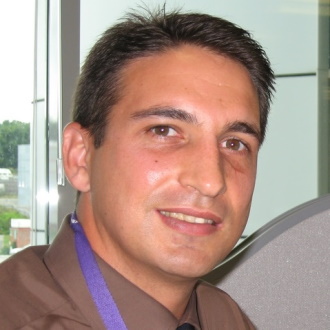
Dr Etienne Coetzee, Airbus

Dr Etienne Coetzee, AirbusEtienne grew up in South Africa and was fascinated with airplanes from an early age. He went on to obtain a Bachelor’s Degree in Mechanical Engineering at the University of Pretoria, after which he started his engineering career at Airbus in Germany. He later moved to Bristol to work as a Modelling and Simulation Engineer on the Airbus A380. During this time he also completed a PhD in Dynamical Systems at the University of Bristol, applying these methods to aircraft landing gears, which are inherently nonlinear by nature. Etienne received the Research Degrees Examination Board prize for the best PhD dissertation in the Engineering Faculty for his work in this area. His main focus is now on the application of these methods on real world problems and to provide tools to engineers for the analysis of nonlinear systems. His research has covered a wide variety of interests, from landing gears to flight mechanics, and more recently on the dynamics of high aspect ratio wings. Etienne has several long-standing collaborations in the UK, Europe, USA and Africa, and is always keen to explore the latest developments in numerical methods. His Royal Society Industrial Fellowship is focusing on the use of active control technology for the design of high aspect ratio wings. |
|
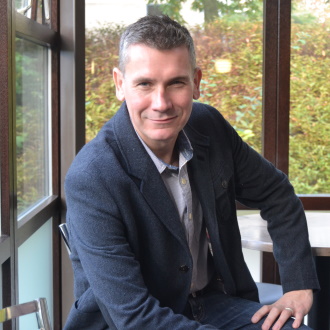
Professor Ian Fairlamb, University of York

Professor Ian Fairlamb, University of YorkIan was born in Crewe (1975) in South Cheshire, and studied towards a degree in Chemistry at Manchester Polytechnic / Manchester Metropolitan University in 1993-1996, then PhD in Organic Chemistry at Manchester Metropolitan University / UMIST* (1996-1999) under the supervision of Dr Julia Dickinson and Dr Seamus Higson*. Ian then took up a PDRA in Mechanistic Palladium Chemistry with Guy Lloyd-Jones at the University of Bristol in 2000-2001. His first academic (PI) appointment was as a fixed-term Organic Lecturer at the University of York (2001-2004). In 2004, Ian was awarded a Royal Society University Research Fellowship (completed in 2012). In 2009/2010, he was promoted to a Personal Chair in Chemistry (Full Professorship). His research has been recognised by several awards (RSC Meldola Medal 2003; RSC Corday-Morgan Prize 2016; SCI AstraZeneca, GlaxoSmithKline, Pfizer and Syngenta Prize for Process Chemistry Research 2019). In 2021, Ian was awarded a Royal Society Industry Fellowship, working with Johnson-Matthey. |
|
Using Light to enable Flight
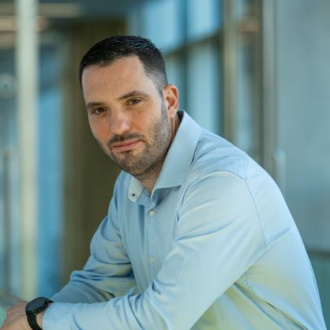
Dr Christopher Holmes, University of Southampton

Dr Christopher Holmes, University of SouthamptonChristopher is a Royal Society Industry Fellow with GE Aviation. He is a Senior Enterprise Fellow at the Optoelectronics Research Centre, University of Southampton and leads research activity within the Aerolaser Lab, which looks to use photonics to decarbonise and increase the sustainability of flight. He is currently Principal Investigator for EPSRC grant EP/V053213/1 (Roll-2-Roll Manufacture of multilayer planar photonics), which develops new flexible planar optics and is part of the Investigator Team for Clean Sky 2 EU project (I2BS), which uses optical fibre sensors to realise smart bearings for jet engines. He is a Director for the Gas Analysis and Sensing Group Ltd (www.gasg.info); Sensors Theme Leader for the University of Southampton’s Strategic Research Group MENSUS (Monitoring of Engineered and Natural Systems Using Sensors); Senior Member of the Optical Society of America (OSA); Associate Editor for IET Science, Measurement and Technology and Chair-elect for the OSA Technical Group on Optical Fabrication and Testing. |
|
Testing Autonomous Vehicle Perception Safety on Hardware Accelerators
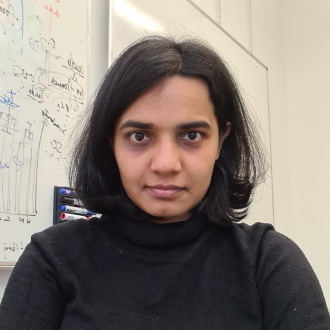
Dr Ajitha Rajan, University of Edinburgh

Dr Ajitha Rajan, University of EdinburghDr Ajitha Rajan is a Reader (or Assoc. Professor) in the School of Informatics at the University of Edinburgh, where she started in 2013 and was awarded the University Chancellor's Fellowship. She graduated with a PhD in Computer Science from the University of Minnesota in 2008, under the supervision of Professor Mats Heimdahl. Dr Rajan's research interests are in the area of software testing and verification. She has worked on different aspects of test automation -- test input generation, formal specifications, coverage measurement and test oracles, that have applied to avionics, automotive, embedded systems, blockchains and medical diagnostics. Her work has been published at various international conferences in software engineering and testing. She received the ACM Distinguished Paper award at ICSE 2008. She is the Associate editor for the IET Software Journal. Dr Rajan has been awarded grants from EPSRC, H2020, Facebook, GCHQ, Huawei, and SICSA. She was selected as one of the winners of the Facebook Testing and Verification Award in 2018 and 2019. |
|
Building Faster Interpreters to Reduce Cost and Energy Use of Massive Ecommerce Systems
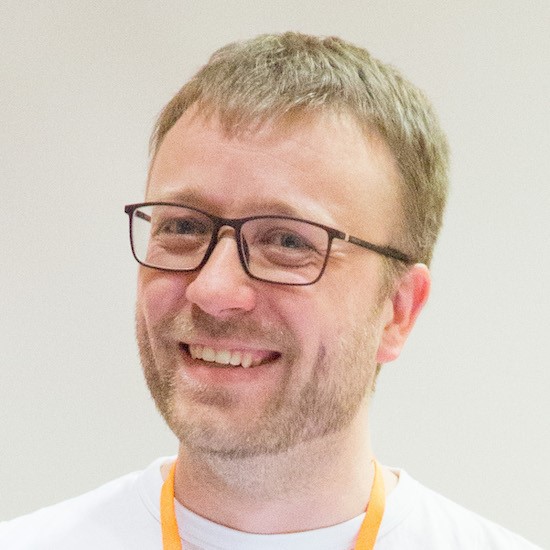
Dr Stefan Marr, University of Kent

Dr Stefan Marr, University of KentStefan Marr is fascinated by how programming languages work. He researches techniques to make programs run faster, and to help developers to better understand their execution, for instance to easier fix bugs. He is an Industrial Fellow and Senior Lecturer at the University of Kent, and got his PhD from the Vrije Universiteit Brussel, Belgium, and his MSc/BSc from the Hasso Plattner Institute at the University of Potsdam, Germany. |
|
|
AI-guided solutions for early dementia prediction
Alzheimer’s disease (AD) is characterised by a dynamic process of neurocognitive changes from normal cognition to mild cognitive impairment (MCI) and progression to dementia. However, not all individuals with MCI develop dementia. Predicting whether individuals with (MCI) or without symptoms (pre-symptomatic) will decline or remain stable is impeded by patient heterogeneity due to comorbidities that may lead to MCI diagnosis without progression to AD. Despite the importance of early diagnosis of AD for prognosis and personalised interventions, we still lack robust tools for predicting individual progression to dementia. Here, we propose a novel trajectory modelling approach that mines multimodal data patients to derive individualised prognostic scores of cognitive decline due to AD before symptoms occur. Our approach has strong potential to facilitate effective stratification of individuals based on prognostic disease trajectories, reducing patient misclassification with important implications for clinical practice and discovery of personalised interventions. 
Professor Zoe Kourtzi, University of Cambridge

Professor Zoe Kourtzi, University of CambridgeZoe Kourtzi is Professor of Computational Cognitive Neuroscience at the University of Cambridge. Her research aims to develop predictive models of neurodegenerative disease and mental health with translational impact in early diagnosis and personalised interventions. Kourtzi received her PhD from Rutgers University and was postdoctoral fellow at MIT and Harvard. She was a Senior Research Scientist at the Max Planck Institute for Biological Cybernetics and then a Chair in Brain Imaging at the University of Birmingham, before moving to the University of Cambridge in 2013. She is a Royal Society Industry Fellow, Fellow and Cambridge University Lead at the Alan Turing Institute, and the Scientific Director for Alzheimer's Research UK Initiative on Early Detection of Neurodegenerative Diseases (EDoN). |
|
Thermal Metrology in Steelmaking
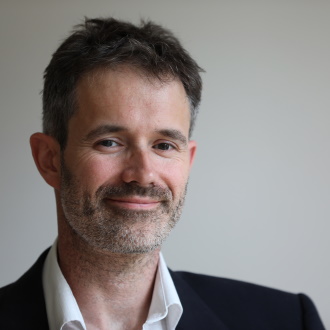
Dr Jon Willmott, University of Sheffield

Dr Jon Willmott, University of SheffieldJon began his career developing instruments to measure properties of liquid crystals at Southampton and Cambridge universities. He then spent ten years in industry, where he designed optical sensors and, particularly, thermal imaging and temperature measuring instruments. In 2014 he was awarded an EPSRC fellowship to start a new optical sensing research group at Sheffield University and subsequently published over 40 papers. With the support of the Royal Society Industry Fellowship, he is taking metrology from the lab and into the steelmaking process with Tata Steel. |
| EiR pitches An opportunity for EiRs to pitch collaborative projects and discuss challenges with the group. | |
Entrepreneur in Residence activity case studies
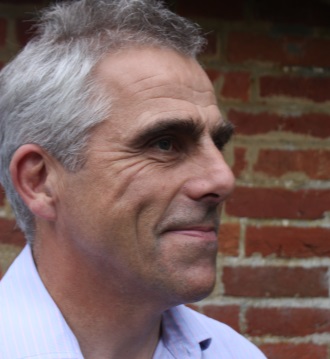
James Otter, Founder of CommLit.Online, Ellipson, and former Entrepreneur in Residence

James Otter, Founder of CommLit.Online, Ellipson, and former Entrepreneur in ResidenceJames was one of the RS EIRs at the University of Southampton from 2018 to 2021. He was sponsored by the University of Southampton’s Institute for Life Sciences. During this time he mentored a range of start-ups and started the commercial literacy course, which gives academic entrepreneurs a grounding in business issues. Over the last 20 years he has led a range of turnarounds of technology companies in a range of sectors including genomics, drug delivery, health IT, nanotechnology, veterinary MRI and sound and vibration instrumentation. He has chaired or been an NED on Octopus Venture Capital Trusts since 2004. His earlier corporate career was with Zeneca Agrochemicals (now Syngenta) where he held a range of international commercial management positions, and before Zeneca he worked with aid organisations in the field in Nepal and the Sahel. James has a degree in Natural Sciences from Cambridge and an MBA from INSEAD. 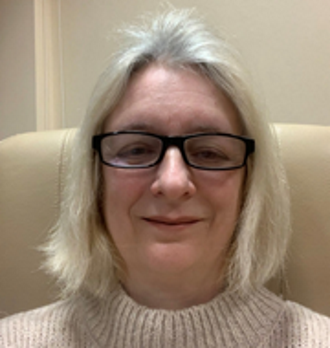
Dr Danuta Mossakowska, Malopolska Centre for Biotechnology Krakow

Dr Danuta Mossakowska, Malopolska Centre for Biotechnology Krakow |
| 15:15 - 15:45 |
How is the Royal Society approaching innovation policy and what are your thoughts?
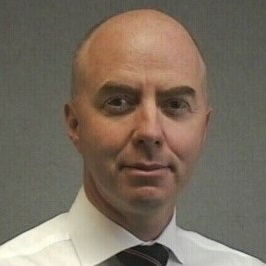
Dr Rupert Lewis, Director of Policy, The Royal Society

Dr Rupert Lewis, Director of Policy, The Royal SocietyRupert is Director of Policy at the Royal Society. Before joining the Society, he led the Government Office for Science (GO-Science) which supports the Government’s Chief Scientific Adviser, providing science advice to the Prime Minister and to the Cabinet, carrying out strategic Foresight projects, and the science of emergency response. His previous roles include head of Automotive policy in the Department of Business, Energy, and Industrial Strategy, where he also led work on business risks and contingency planning and was deputy Chief Scientific Adviser. In Defra he headed Climate Adaptation policy, leading the UK’s first cross-economy climate risk assessment. He also set up the Prime Minister’s ‘Business Council for Britain’. Rupert has a BSc in Marine Biology, a PhD in genetics, and worked on aquaculture development and start-ups in SE Asia, South Africa, and Europe prior to joining Government in 2002. |
|---|
